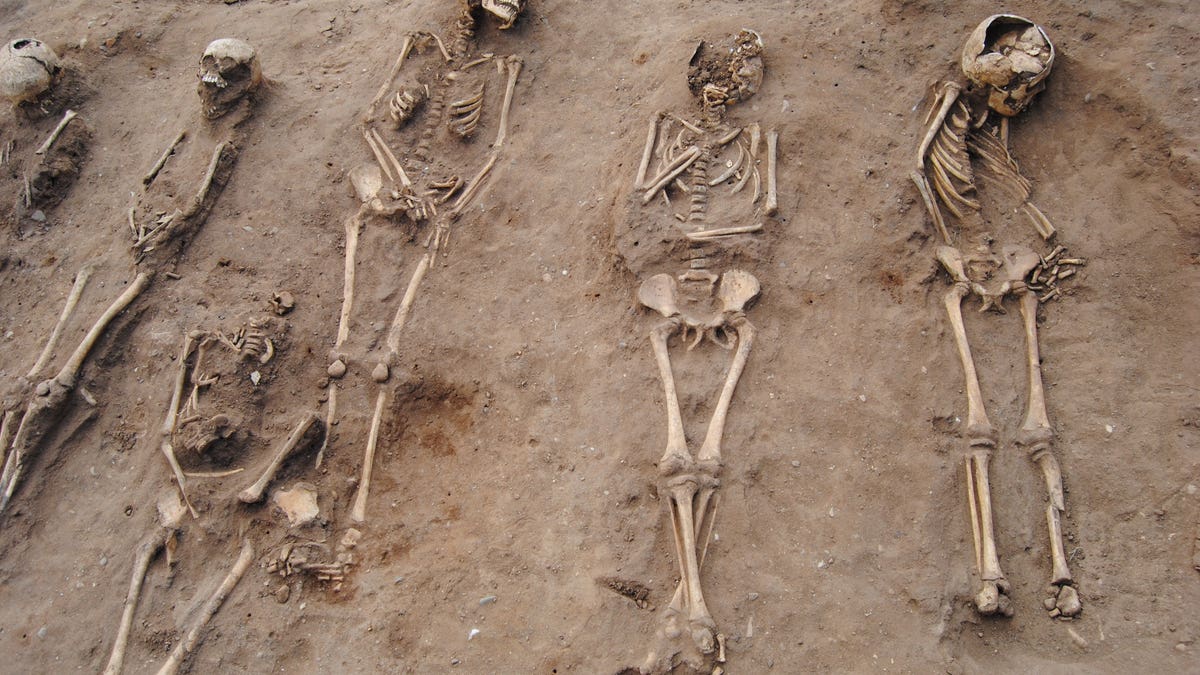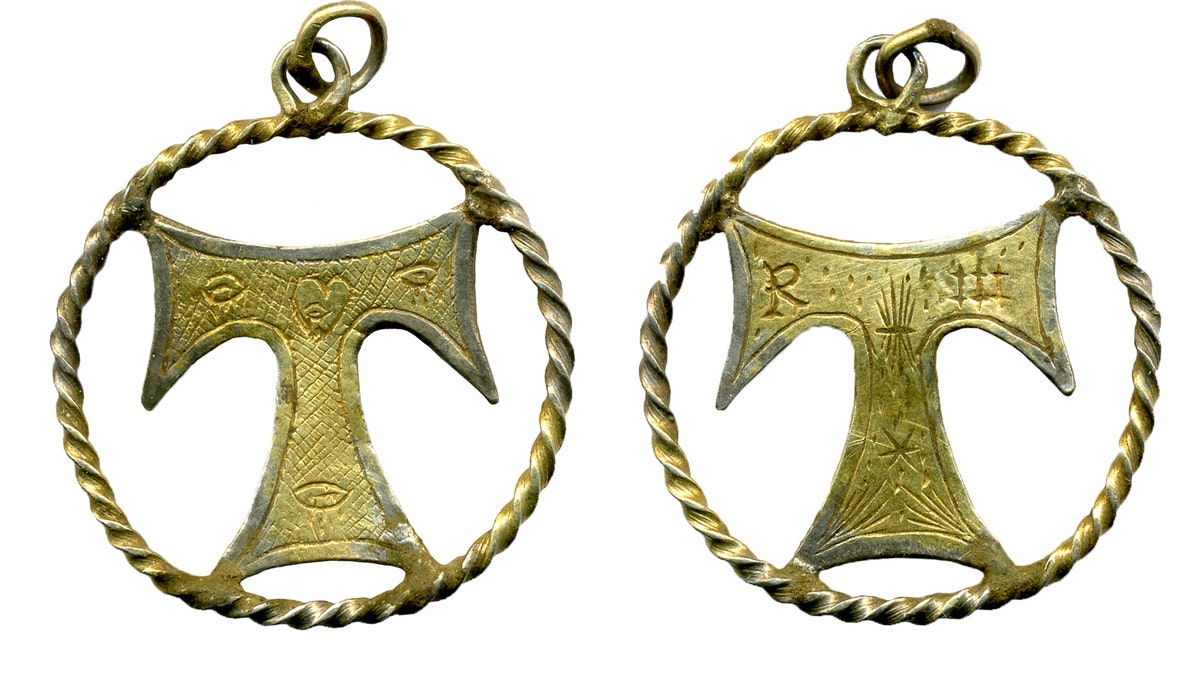
(University of Sheffield)
Archaeologists in England have discovered the remains of 48 victims of the Black Death in a mass grave, just the third such known site of its kind in the United Kingdom.
Among the four dozen bodies found at the site, a medieval abbey in Lincolnshire, England, are the remains of 27 children. The pit was excavated over three summers, and now analysis of DNA found in the teeth of the skeletons has pointed a finger at Yersinia pestis, a bacterium and the culprit of the bubonic plague. Radiocarbon dating has placed the site historically in the 14th century.
“To our complete surprise, we found a huge medieval mass grave,” Dr Hugh Willmott, a senior lecturer in the archaeology department at the University of Sheffield, said in a video explaining the discovery. “A big rectangular pit containing rows of women, men, and a large proportion of children.”
HUGE 3,000-YEAR-OLD GOLD 'BELT' UNEARTHED IN THE UK
In an email to Foxnews.com, Willmott, who led the excavation, described the discovery as a “a very unexpected and unique find.” He explained that the burial pit was initially found in 2013, but that the complex research on the site has “only just come together” after getting the radiocarbon and DNA results.

The Tau Cross (University of Sheffield)
Bodies were not the only thing the excavators found at the site; they also discovered a small pendant known as a Tau Cross in the remains of a hospital building.
“This pendant was used by some people as a supposed cure against a condition called St Antony’s fire, which in modern day science is probably a variety of skin conditions,” Willmott said, in a statement.
FARMER'S FIELD YIELDS HOARD OF ENGLISH CIVIL WAR COINS
Over 70 million, and perhaps as many as 200 million, perished in the Black Death between 1346-1353 in Europe, according to the University of Sheffield. Willmott said that the only two other known Black Death burial sites from the 14th century are in London, making this third one an important find.
"The finding of a previously unknown and completely unexpected mass burial dating to this period in a quiet corner of rural Lincolnshire is thus far unique, and sheds light into the real difficulties faced by a small community ill prepared to face such a devastating threat,” he said in the statement.
Follow Rob Verger on Twitter: @robverger








































